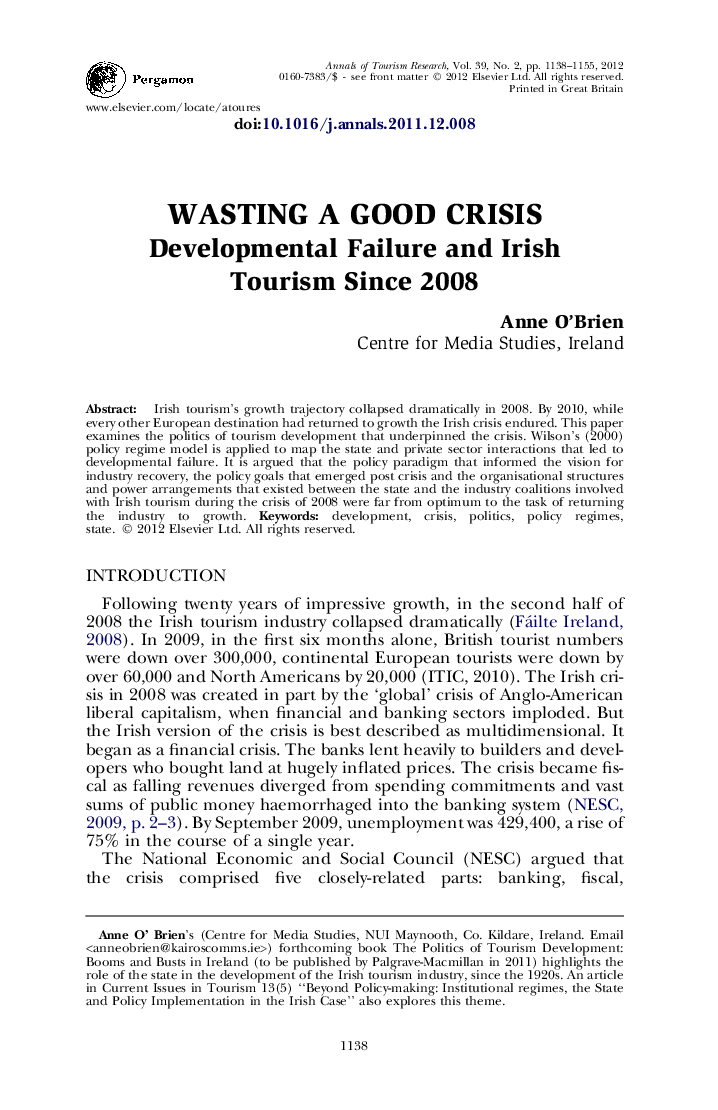| Article ID | Journal | Published Year | Pages | File Type |
|---|---|---|---|---|
| 1007432 | Annals of Tourism Research | 2012 | 18 Pages |
Irish tourism’s growth trajectory collapsed dramatically in 2008. By 2010, while every other European destination had returned to growth the Irish crisis endured. This paper examines the politics of tourism development that underpinned the crisis. Wilson’s (2000) policy regime model is applied to map the state and private sector interactions that led to developmental failure. It is argued that the policy paradigm that informed the vision for industry recovery, the policy goals that emerged post crisis and the organisational structures and power arrangements that existed between the state and the industry coalitions involved with Irish tourism during the crisis of 2008 were far from optimum to the task of returning the industry to growth.
► The collapse of Irish tourism in 2008 is documented through a policy regime framework. ► This maps the organisations, power structures, policy paradigms and goals in crisis. ► Failure to recover is due to the capture of state agencies by the private sector.
